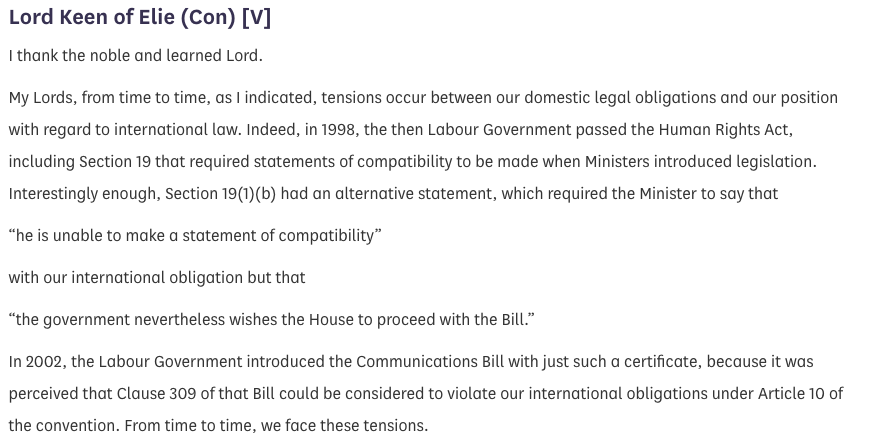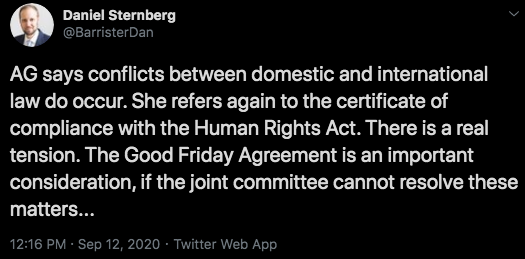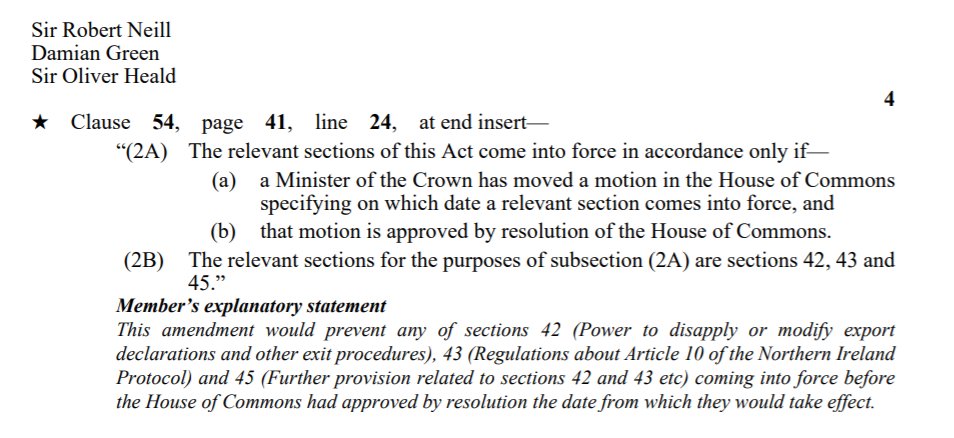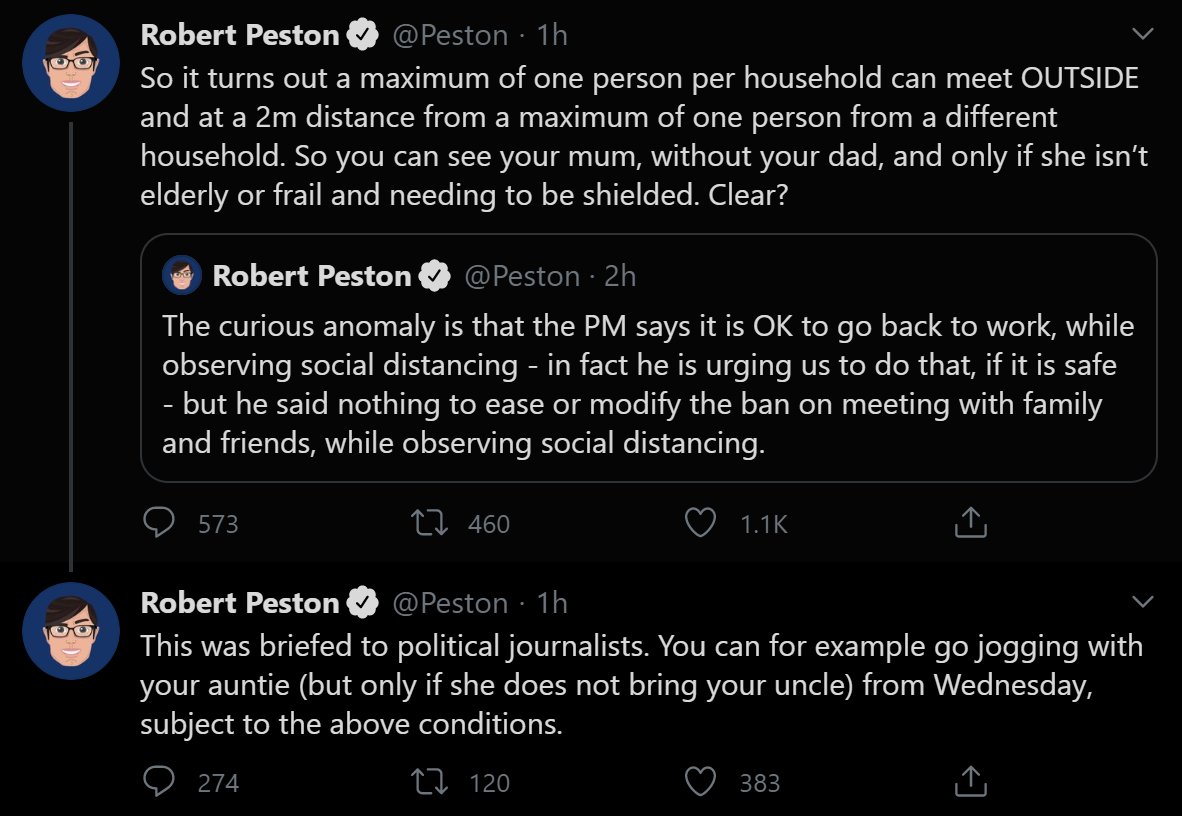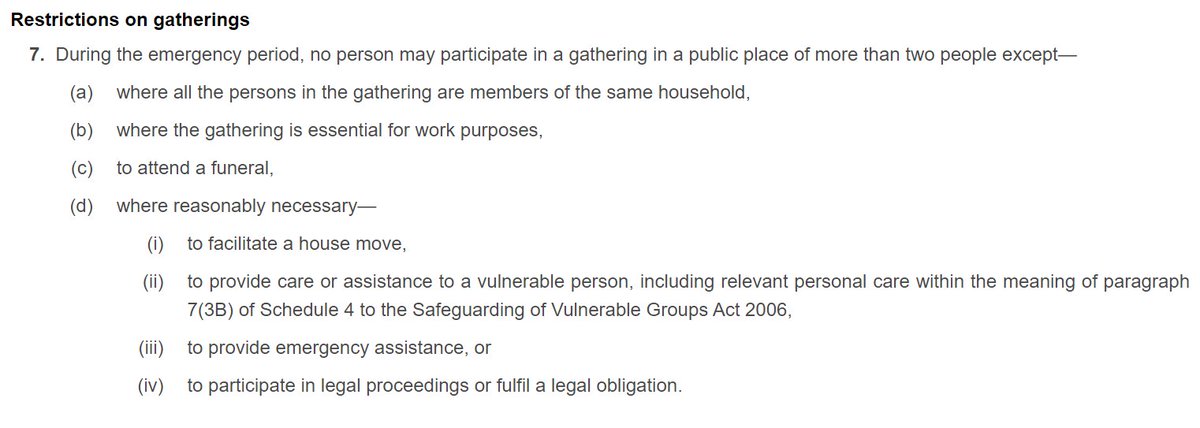
Ratification of a Future Relationship Treaty by the UK [THREAD]
The UK Government cannot ratify a treaty with the EU unless and until it has complied with, or disapplied, Part 2 of the Constitutional Reform and Governance Act [1/x]
The UK Government cannot ratify a treaty with the EU unless and until it has complied with, or disapplied, Part 2 of the Constitutional Reform and Governance Act [1/x]
The default rule is that the Government has to lay a copy of any treaty it reaches with an international organisation. It then has to give Parliament 21 joint sitting days to scrutinise the treaty.
That means both Commons and Lords must be sitting for each of those 21 days [2/x]
That means both Commons and Lords must be sitting for each of those 21 days [2/x]

How long is 21 joint sitting days? The Commons is only expected to sit Monday-Thursday each week for the rest of 2020.
Parliament usually is in recess (at least) between Christmas and New Year.
This leaves only 15 Commons sitting days in December (1-3, 7-10, 14-17, 21-24) [3/x]
Parliament usually is in recess (at least) between Christmas and New Year.
This leaves only 15 Commons sitting days in December (1-3, 7-10, 14-17, 21-24) [3/x]

So you need to make up (at least) another 6 sitting days, either in November or in Fri/Sat/Sun sittings.
The last six sitting days in November are 19, 23-26, 30.
So you have to lay a treaty by Wednesday 18 November or have more sitting days later. [4/x]
The last six sitting days in November are 19, 23-26, 30.
So you have to lay a treaty by Wednesday 18 November or have more sitting days later. [4/x]

The 21 sitting days are notionally quite important because they provide a window within which Parliament can object or raise concerns about a treaty.
But there is no guarantee in law of any debate or vote on a UK-EU future relationship treaty. [5/x]
But there is no guarantee in law of any debate or vote on a UK-EU future relationship treaty. [5/x]
Anyone wanting a debate has to rely on (a) the Government providing for one in its own time or (b) otherwise making time for debate on a motion (perhaps on an opposition day).
This is different from the Withdrawal Agreement. Statute provided for “meaningful votes” [6/x]
This is different from the Withdrawal Agreement. Statute provided for “meaningful votes” [6/x]
If the Lords resolves against a treaty, it cannot block its ratification. However, the Government must justify proceeding regardless.
If the Commons resolves repeatedly against a treaty, however, it can effectively veto a treaty indefinitely. [7/x]
If the Commons resolves repeatedly against a treaty, however, it can effectively veto a treaty indefinitely. [7/x]
Now these default rules aren’t the end of the story. The normal rules in CRAG can be displaced in one of two ways.
The first route is the “Section 22 strategy”
The second is the “Bill strategy”. [8/x]
The first route is the “Section 22 strategy”
The second is the “Bill strategy”. [8/x]
The Section 22 strategy involves the Government arguing that the treaty is an “exceptional case” for whatever reason.
There could still be debates in both Houses on the treaties, and even binding votes, but section 22 would allow the Govt to curtail the waiting period. [9/x]
There could still be debates in both Houses on the treaties, and even binding votes, but section 22 would allow the Govt to curtail the waiting period. [9/x]
The second strategy (my hunch more likely) is that CRAG might be in most senses ignored. @DavidGHFrost has already told Parliament he expects primary implementing legislation for any treaty.
CRAG was disapplied by a Bill for the Withdrawal Agreement: same again plausible [10/x]
CRAG was disapplied by a Bill for the Withdrawal Agreement: same again plausible [10/x]

The Government might, given time pressures, go straight to introducing a Bill, making the pace of ratification dependent on its smooth passage through both Houses.
But they could also schedule debates on the treaty itself as a form of preliminary political consent. [11/x]
But they could also schedule debates on the treaty itself as a form of preliminary political consent. [11/x]
This is similar to what was done for the UK’s accession treaty, and separates the principle of ratifying from implementation.
The framing of what decisions Parliament is taking, and when, may influence perceptions about how acceptable a pressured timetable is. [12/12]
The framing of what decisions Parliament is taking, and when, may influence perceptions about how acceptable a pressured timetable is. [12/12]
• • •
Missing some Tweet in this thread? You can try to
force a refresh

